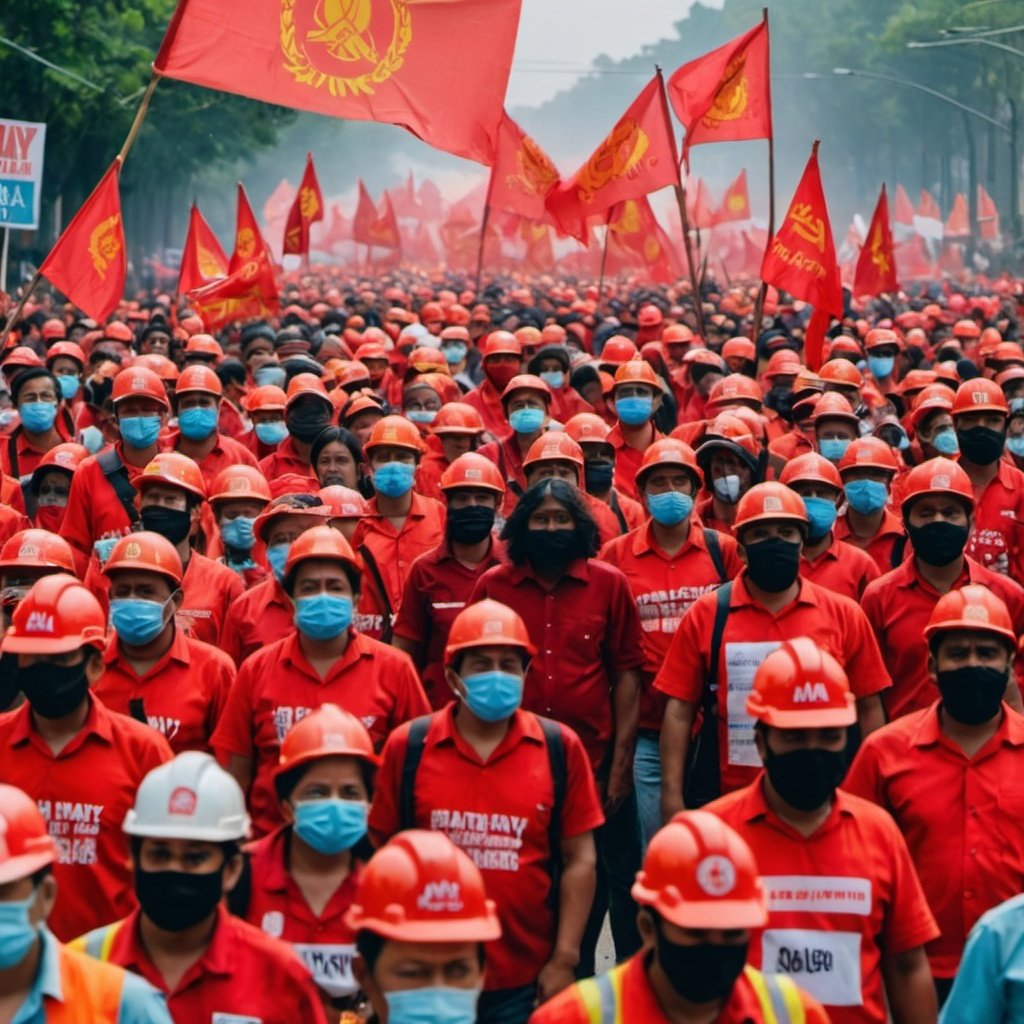Today, on May Day, we celebrate the global working class – the backbone of societies, the engine of progress. Yet, as we raise our voices in solidarity, we cannot ignore the harsh realities that cast a shadow over this year’s commemoration. The struggles faced by workers worldwide demand not just remembrance, but a call to action for a more just and equitable future of work.
The aftershocks of the pandemic continue to reverberate, with many workers grappling with job insecurity, stagnant wages, and the rising cost of living. The gig economy, once touted as the future of work, has exposed many to precarious employment with few benefits or protections. Automation threatens to displace millions, raising anxieties about the skills gap and the need for reskilling.
Geopolitical tensions further exacerbate these challenges. The ongoing war in Ukraine has triggered a global food and energy crisis, disproportionately impacting low-income earners. The threat of a wider conflict looms, jeopardizing supply chains and further destabilizing the global economy.

Yet, amidst these hardships, there’s also a spirit of resilience. Workers worldwide are raising their voices, demanding better working conditions, fair wages, and a greater share in the prosperity they help create. From nurses fighting for safe staffing ratios to delivery drivers organizing for union representation, these grassroots movements are a testament to the enduring power of collective action.
Here are some key areas where we must focus our efforts:
- Universal Basic Income (UBI): As automation continues to reshape the workplace, UBI can provide a crucial safety net, ensuring all have the basic necessities to live with dignity.
- Upskilling and Reskilling Programs: Governments and businesses need to invest in programs that equip workers with the skills needed to thrive in the evolving job market.
- Strengthening Workers’ Rights: Labor laws need to be updated to address the realities of the gig economy and the changing nature of work. Measures like portable benefits and guaranteed minimum income for gig workers are essential.
- Taxation Reform: Progressive tax systems ensure that the wealthy contribute their fair share, generating revenue for social programs that benefit workers, such as affordable childcare and healthcare.
- Global Solidarity: The challenges faced by workers transcend borders. International cooperation is crucial to ensure that workers everywhere have access to decent living standards and fair treatment.
Technology, often seen as the enemy of workers, can also be a force for good. Technological advancements can automate tedious tasks, freeing up workers’ time for more creative and fulfilling work. We need to embrace this potential but ensure that the benefits are shared, not concentrated in the hands of a few.
May Day is not just a day to celebrate the past, but to envision a brighter future for work. We need to move beyond the traditional employer-employee model and explore ideas like worker cooperatives and employee ownership. This could create a more equitable and democratic work environment, where workers have a say in decision-making and share in the profits they generate.
Finally, let us remember the true meaning of May Day: solidarity. Workers united, across industries, across borders, have the power to demand change. This May Day, let’s pledge to stand together, amplify each other’s voices, and fight for a future where work is not just a means to survive, but a source of dignity, security, and fulfillment. As the old slogan goes, “An injury to one is an injury to all.” Together, let’s build a better future of work, for everyone.
In conclusion, the future of work demands a proactive approach. While automation may displace some jobs, it also paves the way for entirely new industries and roles. By embracing lifelong learning, adaptability, and collaboration with technology, workers can not only survive but thrive in this evolving landscape. Governments and educational institutions must work together to equip individuals with the skills needed for the jobs of tomorrow, fostering creativity, critical thinking, and problem-solving abilities.
Looking ahead, the workplace of 2040 will likely see a rise in human-machine collaboration. AI assistants will handle repetitive tasks, freeing up human minds for strategic thinking and complex problem-solving. The gig economy is expected to continue its expansion, offering flexibility and autonomy to workers.
The biggest challenge will be ensuring equitable access to these opportunities. We must bridge the digital divide and provide retraining programs to those most vulnerable to job displacement. By focusing on continuous learning and fostering a culture of innovation, we can turn the tide of technological disruption into a wave of progress, empowering workers to navigate the exciting, uncharted territory of the future of work.






